A dynasty is a sequence of hereditary rulers, but all of them are not equally famous. The English kings belonged to various dynasties- Saxon Danish Dynasties, Plantagenet, Tudor, The Stuarts, the Hanoverian dynasty (and the current Saxe-Couburg-Gotha or the Windsor Dynasty). Tudors include the best known, as well as tyrannical monarchs like Henry VIII who is famous for marrying six times and executing two of his wives and his daughter. His great daughter Elizabeth I was the ablest of the Tudors and led England to victory over Spain.
1. Richard I
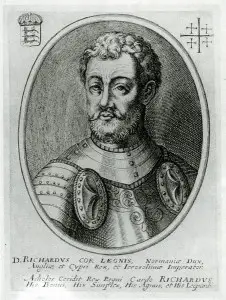
King Richard I was born to Henry II of England and Eleanor of Aquitaine in Beaumont Palace, Oxford, England on September 8, 1157. He died in Chalus, Limousin province, France on April 6th, 1199 at the age of 41. His predecessor was his father Henry II and his successor was his brother John. He was king of England from July 6, 1189 until his death on April 6, 1199. Richard I was officially crowned duke on July 20th, and king of Westminster Abbey on September 3, 1189. All Jews were barred from attending the ceremony and a few who came with presents were stripped and flogged. He remained out of England, fighting enemies for most of the time because he thought it was, ‘cold and always raining’. King Richard I was known as ‘Richard the Lion Heart’. He fought the third crusade with an aim to take Jerusalem from the Muslim King Saladin.
2. Henry II
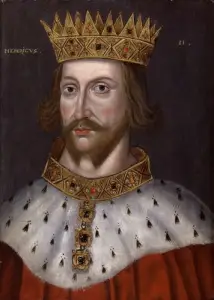
King Henry II of England was born to Geoffrey V, Count of Anjou and Matilda of England in Le Mans, France on March 5, 1133. He died in Chignon,France on July 6, 1189 at the age of 56. He followed King Stephen, and his son Richard ÃŽâ„¢ was the next king. He reigned England from October 25, 1154 to July 6, 1189. Henry II was coronated on December19, 1154. Henry II was not closely related to Stephen therefore started a new Dynasty- the Plantagenets. He appointed magistrates to implement law in king’s name. He appointed Thomas Becket, who was a friend, as Archbishop of Canterbury. However instead of the king, he supported the church. Annoyed over it, the king said to his knights, ‘Will no one rid me of this meddlesome priest?’ Thereupon the knights killed him in 1170 in Canterbury Cathedral and Henry had to do penance for it. Jeoffery Chaucer in his famous ‘Canterbury tales’ mentions the pilgrims traveling towards the shrine of Thomas a Becket in Canterbury.
3. Henry III
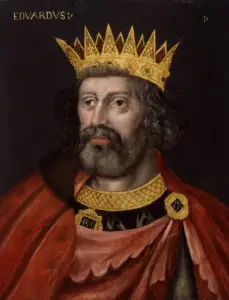
Henry III was born to John, King of England and Isabella, Countess of Angouleme in Winchester Castle, Hampshire on October 1, 1207 and died in Winchester London on November 16, 1272 at the age of 65. His father was King John and his son was King Edward I. Henry III was only 9 years old when he became king. His regents looked ran the affairs of kingdom in accordance with Magna Carta. Later on, Henry became more autocratic and a few barons led by Simon de Montfort entered into a civil war against the king who was defeated and taken prisoner in the Battle of Lewes. His Son Edward ÃŽâ„¢ escaped while Simon de Montfort was killed in the Battle of Evesham in 1265.
4. Henry V
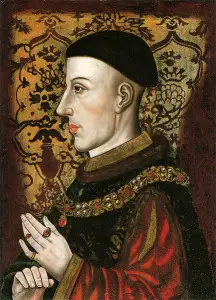
Henry V was born to Henry IV of England and Mary de Bohun in Monmouth, Wales in 1386 and died in Chateau de Vicennes, France on August 31, 1422 at the age of 35. Henry V was son of King Henry IV and father of Henry VI. He belonged to the Lancaster Dynasty and reigned from March 20, 1413 to August 31, 1422. He differed with his father over politics and restored peace in England by restoring the lands and titles to those who lost them during civil war. Henry V defeated the French at Agincourt when his archers killed the French cavalry.
5. Edward V
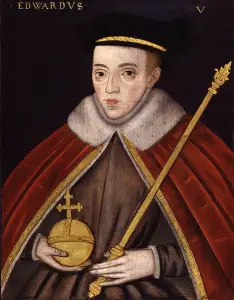
Edward V was born to Edward IV of England and Elizabeth Woodville in Westminister, England on November 2, 1470 and died on July 29, 1483.He was only 12 years old when he became king after the death of his father. His father had appointed his brother as protector of the young king, but it was a mistake on his part because his brother Richard was overambitious and he imprisoned Edward V and his younger brother in the Tower of London. Richard made himself the King in 1483 and the two young princes were never seen again.
6. Henry VIII
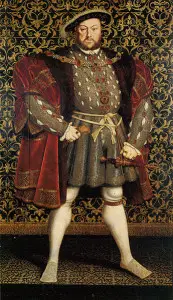
Henry VIII was born to Henry VII of England and Elizabeth of York in Greenwich Palace, Greenwich on June 28, 1491. He died in Palace of Whitehall, London on January 28, 1547 at the age of 55. His predecessor was his Father; King Henry VII and his son King Edward VI succeeded him. Henry’s first wife Catherine had only one daughter, and considering that she could not inherit his kingdom, he wanted to divorce Catherine and remarry someone else. Since the Pope did not allow him to do this, he founded the Church of England in 1534 and appointed himself as its head. He had six wives including three Catherines, two Annes and one Jane. He divorced and beheaded a few of them. Having abolished the Roman Catholic Church in England, he dissolved monasteries and built hospitals, schools and colleges. Trinity College in Cambridge has statue of Henry VIII on the gate house in remembrance of the Tudor’s good work.
7. Charles II
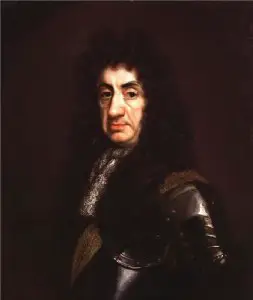
Charles II was born to Charles ÃŽâ„¢ and Henrietta Maria of France in St. James Palace, London, England on May 29, 1630 and died in Whitehall Palace, London on February 6, 1685 at the age of 54. His predecessor was his father King Charles ÃŽâ„¢ and he was succeeded by his brother King James II. He was monarch of three kingdoms- England, Scotland and Ireland. His father was executed during The English Civil War. Following a controversy between Scotland and England over the legitimacy of monarchy, Cromwell took over the rule and Charles resumed after 9 years exile. The foundation of Royal Society, the 1665 outbreak of plague, and the Great Fire of London in1666 are major events during his reign from 1660 to 1685.
8. George III
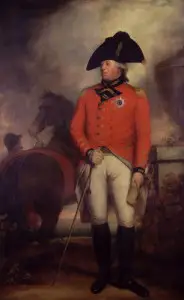
George William Fredrick was born to Fredrick; Prince of Wales and Augusta of Saxe-Gotha in Norfolk House, St. James Square on June 4, 1738 and died in Windsor Castle on January 29, 1820 at the age of 81. He inherited the kingdom from his grandfather King George II, and his son George IV was the next king. He reigned from October 25, 1760 to January 29, 1820. He was King of Great Britain and King of Ireland from October 25, 1760 to January 1, 1801, after which he was King of the United Kingdom of Great Britain and Ireland until his death. He belonged to House of Hanover. During the American War of Independence from 1775 to 1783 British Colonies fought and gained independence. George Washington became the first President of the new United States of America. In the later part of his life George III became mad and is sometimes known as the ‘Mad King’ or ‘The King who lost America’.
9. George VI
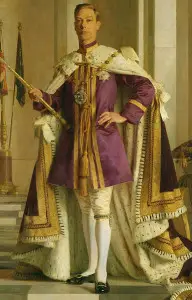
George VI was born to George V and Mary of Teck in York Cottage, Sandringham House, Norfolk, United Kingdom on December14, 1895 and died in Sandringham House, Norfolk on February 6, 1952. He belonged to the House of Windsor and he was king of the United Kingdom and the Dominion of the British Commonwealth. He was the first Head of Commonwealth and the last Emperor of India. After the independence of Pakistan and India in 1947, King George VI abandoned the title of ‘Emperor of India’.
10. King Edward VII
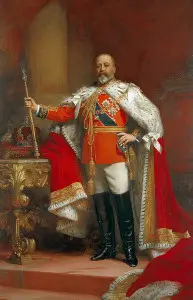
King Edward VII was born to Prince Albert of Saxe-Coburg and Gotha, and Victoria of the United Kingdom in Buckingham Palace, London, United Kingdom on November 9th 1841. He died in Buckingham Palace, London, United Kingdom on May 8, 1910 at the age of 68. He started Saxe-Couburg-Gotha Dynasty and he was the only king who belonged to it. While he was going through the last stages of life, between moments of consciousness the Prince of Wales told him that his horse ‘Witch of the Air’ had won, the king uttered his last words, ‘I am very glad’.
Conclusion:
Contrary to the famous words ‘Long live the King!’, most of the English Kings lived short lives. There seems to be some sort of co-relation between history and longevity of the English kings. There is notable rising tendency and the later kings seemed to live longer than the earlier kings. English history is a very vibrant history, rich with all sorts of kings and events.










Leave a Reply